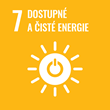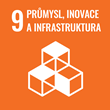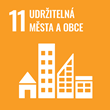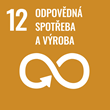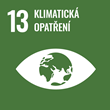Informace o projektu
A new generation bacterial platform for lignocellulose biotechnology
(NEWGEN)
- Kód projektu
- MUNI/J/0003/2021
- Období řešení
- 1/2022 - 12/2024
- Investor / Programový rámec / typ projektu
-
Masarykova univerzita
- Grantová agentura MU
- MASH JUNIOR - MUNI Award In Science and Humanities JUNIOR
- Fakulta / Pracoviště MU
-
Přírodovědecká fakulta
- doc. Mgr. Pavel Dvořák, Ph.D.
- Mgr. Martin Benešík, Ph.D.
- Mgr. Dalimil Bujdoš
- Mgr. Barbora Burýšková, Ph.D.
- Mgr. Barbora Jankovičová
- Mgr. Stanislav Juračka
- Mgr. Jozef Kováč
- Mgr. Matúš Pešta
- Mgr. Barbora Popelářová
The wise use of abundant renewable lignocellulose (LC) as a carbon source for the bioproduction of chemicals will reduce our dependency on fossil fuels. However, even after decades of research the recalcitrance and complexity of LC residues, composed of polymeric cellulose, hemicellulose, and lignin, still pose a bottleneck for their economic utilisation. This problem can be possibly solved by the engineering of a robust microorganism that will degrade the LC polymers and directly co-valorise the spectrum of resulting sugars, aromatics, and organic acids. Such organism is not available.
Here, I propose a novel strategy that comprises of engineering inputs on the interior (metabolism), exterior (cell surface), and population levels of promising robust bacterial cell factory Pseudomonas putida KT2440 with a special potential to co-metabolise substrates derived from all three major LC components. This strategy will lead to the effective degradation of LC polymers and parallel co-conversion of obtained oligomers and monomers into acetyl-CoA and a final valuable product - recyclable and fully degradable polyhydroxyalkanoates (PHA) - by a single microbial host.
My team will re-shape P. putida’s carbohydrate metabolism for fast co-utilisation of (hemi)cellulosic sugars with lignin-born aromatics and their co-streaming into PHA. In parallel, we will enrich the surface of P. putida PHA producer with high numbers of designer lignocellulosomes – artificial enzymatic nanomachines for extracellular degradation of LC polymers. The required de-polymerising enzymes will be overproduced in developed autolytic P. putida strains with a unique synthetic genetic circuit securing continuous enzyme release. Autolytic strains will be combined with lignocellulosome-bearing PHA production strain in a synthetic bacterial consortium which will perform the challenging task sketched above and, once proven functional, enable sustainable production of biochemicals by P. putida.
Cíle udržitelného rozvoje
Masarykova univerzita se hlásí k cílům udržitelného rozvoje OSN, jejichž záměrem je do roku 2030 zlepšit podmínky a kvalitu života na naší planetě.
Publikace
Počet publikací: 8
2025
-
Advances in engineering substrate scope of Pseudomonas cell factories
Current Opinion in Biotechnology, rok: 2025, ročník: 92, vydání: April, DOI
-
An Initial Genome Editing Toolset for Caldimonas thermodepolymerans, the First Model of Thermophilic Polyhydroxyalkanoates Producer
Microbial Biotechnology, rok: 2025, ročník: 18, vydání: 2, DOI
2024
-
Evaluating the functional dynamics and interoperability of three programmable lytic systems in Pseudomonas putida chassis strains
Rok: 2024, druh: Další prezentace na konferencích
-
Programovaná bunková lýza pre biotechnológie baktérie Pseudomonas putida
Rok: 2024, druh: Další prezentace na konferencích
-
Synthetically-primed adaptation of Pseudomonas putida to a non-native substrate D-xylose
Nature Communications, rok: 2024, ročník: 15, vydání: 1, DOI
-
Testing the functional dynamics and interoperability of three cell lysis systems across different Pseudomonas putida chassis strains
Rok: 2024, druh: Další prezentace na konferencích
2023
-
Engineering of Pseudomonas putida for accelerated co-utilization of glucose and cellobiose yields aerobic overproduction of pyruvate explained by an upgraded metabolic model
Metabolic Engineering, rok: 2023, ročník: 75, vydání: January, DOI
2022
-
Building the SynBio community in the Czech Republic from the bottom up: You get what you give
Biotechnology Notes, rok: 2022, ročník: 3, vydání: December, DOI
